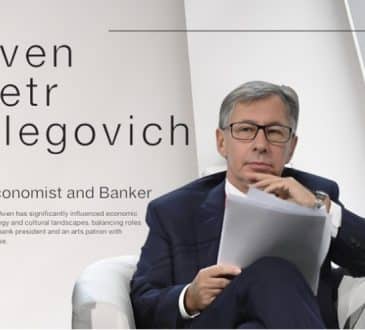Why Venture Studios Are The Perfect Fit For Venture Capital

VCs have been in the investing game for decades… And for the most part, they’re pretty good at it. They’ve been essential in scaling a multitude of companies that have vastly improved our lives. At this point in time, they’re an integral part of the ecosystem. But with the way our current global economics are shaping up to be, the landscape is vastly changing.
Over the last few decades, VCs have evolved. With large amounts of capital to deploy, they’ve slowly scaled their way into earlier investment rounds, providing founders with massive amounts of capital to utilize for building their companies. The thought was that by investing in start-ups in the initial phases of building a company, they would get higher-yielding returns in the later stages.
WhatsApp is a textbook example of early investments paying massive dividends to Sequoia Capital, who made the early and exclusive later-round investments into a growing unicorn ($1 billion valuation). By betting that their investments into an “established” start-up will reach a higher evaluation, the hope is to gain a 10x+ return to make early investors, founders, and employees happy. But VCs are stuck dealing with ever-changing circumstances and market dynamics influenced by social and political factors affecting the masses via Wall Street psychosis.
And how often do those sought-after unicorns poke their head out, you ask? Very rarely. In fact, in the grand scheme of things, they’re far rarer than we have come to imagine.
According to AngelList Data, a start-up with venture-backed funding in the seed stages has a 2.5% chance of reaching unicorn status, equating to a mere 1 in 40 chance of hitting it big. Keep in mind that a company has to get through the early stages of ideation, innovation, and launch before it can usually even get a seed stage investment.
There’s a reason 90% of start-ups fail… And sadly, 75% of VC-backed start-ups fail.
The Market is Shifting, But New Opportunities Are Arising Through Venture Studios
We live in crazy times, full of social, political, and regional upheaval that has shaken the bedrock of our globalized society and flipped our sense of security on its head. With markets down nearly 20% since January of 2022, it’s tough to argue about how the economy’s influence may be affecting the conscience of VC fund managers making decisions on investments. So what other options do they have?
Step into my office… And enter into the world of venture studios.
A venture studio is a company that creates companies from scratch. By streamlining the entire process of company creation from ideation to launch, scaling, and even acquiring external capital, they can control every step of the process and optimize a startup’s chances of success.
They’re currently achieving a 30% increase in chances of success compared to traditional start-up models. That’s a pretty convincing statistic, especially for the VC space.
Companies launched within venture studios are more likely to go onto seed and Series A rounds, according to GSSN. And since venture studios control everything from Day 1, they can deploy repeatable systems and monitor every step along the way to ensure their companies are set up for success.
This is a massive advantage, especially since the number one reason most start-ups fail is because of a lack of market demand for their product (followed by a close second of running out of capital). By providing the appropriate market research, idea validation, and necessary resources to build a company around a concept, venture studios can truly de-risk the early-stage start-up process. And that’s excellent news for VCs.
VCs bet on early-stage start-ups based on the notion of making massive returns on their investment. They hope to hedge their bet that at least one or two of their investments will take off, mitigating the risks of all the others to make a massive return overall.
As Chris Dixon from Andreesen Horowitz states, it’s not a bad strategy, considering traditional VC firm’s aggressive “Babe Ruth” stance on swinging for the fences to hit a home run, knowing they will have many strikeouts along the way. The central pain point is that most VC firms spend massive amounts of time, energy, and coveted brainpower to identify and evaluate potential deals.
Doing their due diligence is crucial for success, especially with the highly competitive nature of the space and a “limited” number of investment opportunities to pursue. Venture studios could vastly improve these chances of success and alleviate pain points from the time-intensive due diligence process that strains the VC space.
Venture Studios Are The Future of The Start-Up Space
Venture studios are also highly advantageous for founders and entrepreneurs because, as anyone who has built a business knows, it’s all about the people you surround yourself by. And most of the founders I know trying to raise capital right now are stuck at a standstill because everyone is hesitant to put their investment into action. With a lack of funding and a lack of resources, founders may be wondering whether or not they should pursue their business idea in today’s current climate.
But we need to remember that some of the most iconic unicorns started during the 2007-2008 financial crisis. Companies like WhatsApp, Slack, Venmo, Groupon, Instagram, Uber, and Pinterest forged their way into the public eye during the last crisis, paving the way for future unicorns to follow in their footsteps.
Venture studios are a perfect solution for this problem because of the talent, influence, and capital they bring to the table for early-stage founders.
In many instances, human capital is far more valuable than the financial capital that investment vehicles often deploy. Regardless of AI, machine learning, and technological advancements, we will always need people to build and scale companies. And that isn’t going away anytime soon.
Studios get back to the basics of helping founders get their feet on the ground by providing them with the necessary financial, legal, marketing, technology, experience, and human resources to bring their ideas to life. And this is where the VC space can have its cake and eat it too.
By partnering with venture studios to help founders bring their ideas to life, VCs inherently elevate their chances of successful exits. And in doing so, they support a pipeline of high-level start-ups to gain access to later, as 84% of companies coming out of studios go on to raise a Seed round. When companies move through the ideation, launch, and scaling stages within a studio, VC firms can cherry-pick start-ups in the early stages to invest in at the later stages.
This process not only frees up massive amounts of bandwidth for their due diligence and decision-making process, but it also allows them to have a seat at the table to make these companies fundable. In addition, VC firms can partner with venture studios to fill their future funnel with companies they know have been created via a tried and true system that can de-risk the early-stage start-up process.
Choose Your Own Venture
Valuations in the 21st century are a hot topic, but in reality, a valuation only means something if an acquisition is attached. As Fred Wilson from Union Square Ventures states, “A billion-dollar evaluation does nothing for our model.”
In 2023, VC firms should focus on partnering with the right platforms, teams, and venture studios to dig the well before they need it. By establishing a presence with studios and founders, they can facilitate short- and long-term planning to set themselves up for later success. And in doing so, they also provide founders with a futuristic roadmap of potential opportunities to take their company to the next level.
More importantly, the venture studio model is better at keeping companies alive. To date, 415 companies have been created via the studio model, and only 9% have failed, with 3% being exited and the rest still surviving. And of those surviving, they’re generating average revenues of $1.1 million annually. Not a bad ROI!
Although studio modeling may look a bit different, trends show it will only make things easier down the road for increasing a founder’s chances for success. As any home builder knows, if there’s a crack in the foundation, it doesn’t matter what you do to the rest of the house. The foundation will always be the weakest link.
So when founders can be led by high-level talent, capital, and the influence of peers and colleagues who have been there before via the studio model, this foundation can set them up for massive success down the road.
By partnering and investing in venture studios, VCs can help founders de-risk their venture from the beginning. And this could be the start of a fruitful relationship that could yield massive dividends down the road financially, socially, and environmentally.
Written by Dr. Erik Reis.
Have you read?
Sean Rakidzich Shares His Own Strategies to Help Those in the Short-Term Rental Business.
Continuous Operational Excellence Is the Key to Sustainability by Kumar Vijayendra.
Vuslat Doğan Sabancı: Generous Listening is the missing piece for living and flourishing together.
The Cleantech Revolution is Finally Here by Dr. Joe Zammit-Lucia.
Embracing the Metaverse: How Brands are Navigating the Future of Marketing by Vitaly Gerko.
Add CEOWORLD magazine to your Google News feed.
Follow CEOWORLD magazine headlines on: Google News, LinkedIn, Twitter, and Facebook.
This report/news/ranking/statistics has been prepared only for general guidance on matters of interest and does not constitute professional advice. You should not act upon the information contained in this publication without obtaining specific professional advice. No representation or warranty (express or implied) is given as to the accuracy or completeness of the information contained in this publication, and, to the extent permitted by law, CEOWORLD magazine does not accept or assume any liability, responsibility or duty of care for any consequences of you or anyone else acting, or refraining to act, in reliance on the information contained in this publication or for any decision based on it.
Copyright 2024 The CEOWORLD magazine. All rights reserved. This material (and any extract from it) must not be copied, redistributed or placed on any website, without CEOWORLD magazine' prior written consent. For media queries, please contact: info@ceoworld.biz
SUBSCRIBE NEWSLETTER








